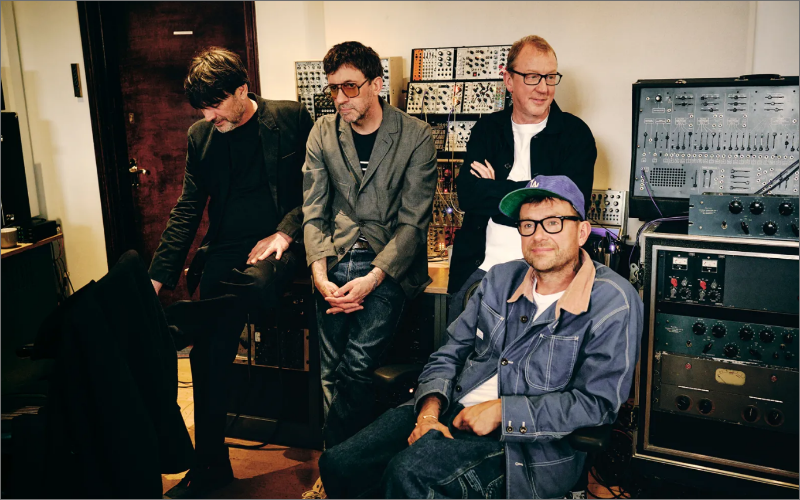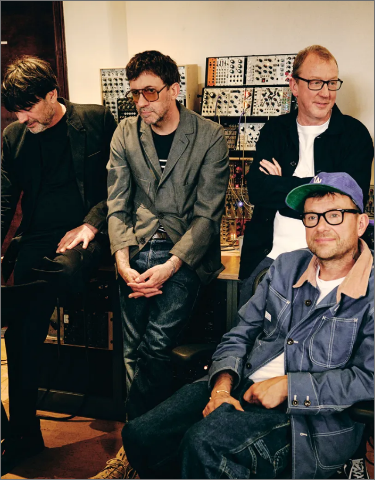Blur, one of Britain’s most iconic alternative rock bands, has not only made waves in the music industry with their distinct sound and enduring hits but also provided invaluable lessons in risk management for other music groups. Their journey highlights the importance of managing stakeholders, fostering partnerships within the team, leveraging technology, protecting intellectual property, and navigating competition. Here’s an in-depth look at how Blur has successfully bounced back and what other music groups can learn from their experience.
Managing Stakeholders
For any music group, stakeholders are not just limited to band members but also include record labels, managers, promoters, and fans. Effective stakeholder management is crucial for sustaining long-term success.
Blur’s Approach
Blur has managed their stakeholders by maintaining strong, transparent relationships with their record label and management. Their ability to communicate openly and set clear expectations has been a cornerstone of their longevity. For instance, during the Britpop era, Blur’s record label, Food Records, played a significant role in promoting their music and crafting their public image. By aligning their creative vision with the label’s marketing strategy, Blur ensured that both parties worked towards common goals, resulting in successful album releases and sold-out tours.
Lesson for Music Groups
Other music groups can learn from Blur by prioritizing clear communication and alignment with their stakeholders. Regular meetings, transparent financial dealings, and mutual respect are essential in building trust and long-term relationships.
Partnerships Within the Team
Internal dynamics within a music group can make or break its success. Effective collaboration and conflict resolution are vital for maintaining a cohesive and productive team.
Blur’s Approach
Blur has experienced its fair share of internal conflicts, particularly during the height of their fame. The tensions between Damon Albarn and Graham Coxon are well-documented, with Coxon’s departure in 2002 marking a significant low point for the band. However, Blur managed to overcome these challenges by addressing the underlying issues and prioritizing their shared passion for music. Coxon’s return to the band in 2009 was a testament to their resilience and ability to reconcile differences for the greater good.
Lesson for Music Groups
Music groups should focus on building strong interpersonal relationships and fostering an environment where members feel valued and heard. Regular team-building activities, open dialogue about creative differences, and professional mediation when needed can help resolve conflicts and strengthen the group’s internal partnerships.
Leveraging Technology
The music industry has undergone a significant transformation with the advent of digital technology. Embracing technological advancements is crucial for staying relevant and reaching a broader audience.
Blur’s Approach
Blur has adeptly leveraged technology to stay connected with their fans and adapt to the changing landscape of the music industry. They were among the first bands to use the internet to promote their music, launching a website in the mid-1990s when the internet was still in its infancy. More recently, Blur has utilized social media platforms and streaming services to release new music and engage with fans globally. Their 2015 album, “The Magic Whip,” was promoted heavily through digital channels, showcasing their ability to adapt to modern marketing strategies.
Lesson for Music Groups
Embracing technology is essential for modern music groups. This includes maintaining an active online presence, utilizing social media for fan engagement, and exploring new distribution channels such as streaming services. Investing in digital marketing and analytics tools can also provide valuable insights into audience preferences and behavior.
Protecting Intellectual Property (IP)
Intellectual property, including songs, lyrics, and branding, is a crucial asset for any music group. Protecting these assets ensures that the group retains control over their creative output and revenue streams.
Blur’s Approach
Blur has been proactive in protecting their intellectual property. They have registered trademarks for their name and logo, ensuring that their brand is legally protected. Additionally, they have been vigilant about copyrighting their music and pursuing legal action when necessary to defend their rights. This approach not only safeguards their financial interests but also maintains the integrity of their artistic work.
Lesson for Music Groups
Other music groups should prioritize securing their intellectual property through trademarks, copyrights, and other legal protections. Working with legal professionals who specialize in entertainment law can help navigate the complexities of IP rights and prevent potential disputes.
Navigating Competition
The music industry is highly competitive, with new artists emerging constantly. Successfully navigating this competition requires innovation, strategic positioning, and a deep understanding of market dynamics.
Blur’s Approach
Blur has consistently demonstrated an ability to stay ahead of the competition by evolving their sound and image. During the 1990s, they were at the forefront of the Britpop movement, defining an era with albums like “Parklife” and “The Great Escape.” When the Britpop wave started to wane, Blur shifted gears with their eponymous 1997 album, incorporating more experimental and alternative rock elements. This willingness to innovate and adapt has kept them relevant through changing musical trends. According to the Economist, a new documentary, “To the End”, follows their reunion to record a new album in 2023 and a triumphant run of shows at London’s Wembley Stadium. Dave Rowntree, Blur’s drummer, admits in the film that they were previously never popular enough to fill the venue. “The less we do,” he says, “the bigger we get.” Today, Blur aren’t broken up anymore — they’ve played a handful of reunion shows in the U.K. and abroad every few years starting in 2009, to the delight of their fans.
Lesson for Music Groups
To navigate competition, music groups should focus on continuous innovation and staying true to their unique artistic vision. Keeping an eye on industry trends and being willing to experiment with new styles and genres can help maintain a fresh and appealing image. Additionally, building a loyal fan base through consistent engagement and high-quality releases is crucial for long-term success.
Blur’s Resilience: A Case Study
Blur’s journey is a powerful case study in resilience and effective risk management. Despite internal conflicts, shifts in the music industry, and intense competition, they have managed to bounce back and remain influential.
Key Example: The Magic Whip
One of the most notable examples of Blur’s resilience is their 2015 album, “The Magic Whip.” After a long hiatus and uncertainties about their future, Blur reunited to record new material. The album’s creation was a testament to their ability to overcome past differences and collaborate creatively. “The Magic Whip” received critical acclaim and commercial success, reaffirming Blur’s place in the music industry and showcasing their enduring appeal.
Key Example: Reunion Tours
Blur’s reunion tours have also highlighted their strategic approach to risk management. By carefully planning their return to the stage and leveraging their legacy, they have successfully rekindled interest among long-time fans while attracting new audiences. These tours have not only been financially lucrative but also served as a platform to demonstrate their continued relevance and musical prowess.
Blur’s experience offers valuable risk management lessons for music groups. Effective stakeholder management, fostering strong internal partnerships, leveraging technology, protecting intellectual property, and navigating competition are all critical components of a successful strategy. By learning from Blur’s resilience and adaptability, other music groups can better navigate the challenges of the music industry and achieve long-term success.















